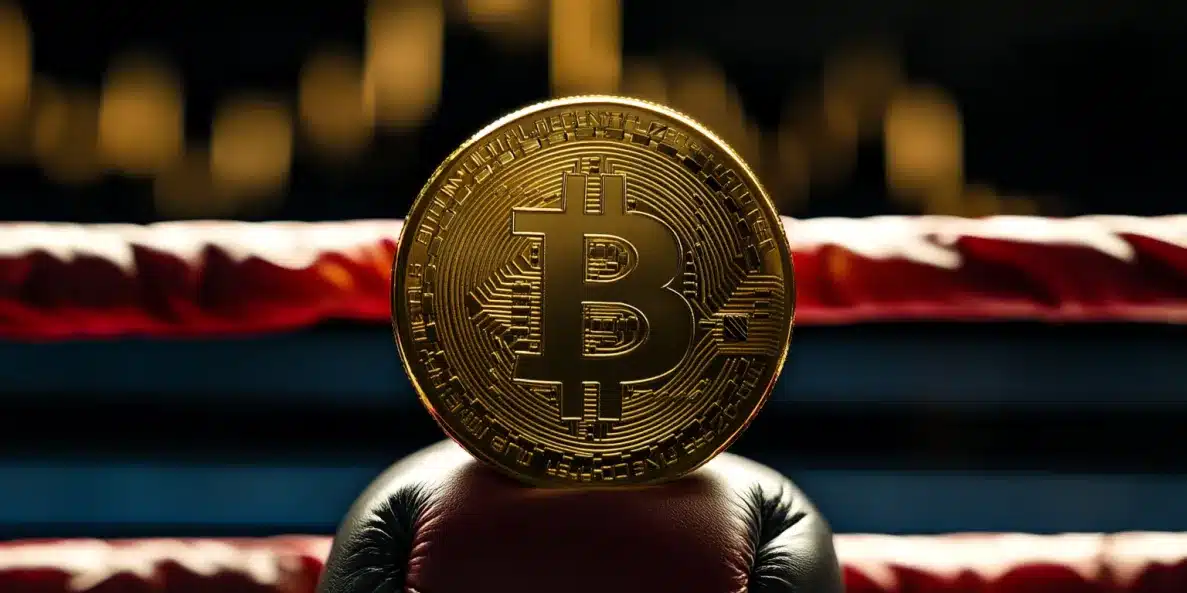The cryptocurrency community is currently witnessing a high-stakes legal drama that could greatly influence the landscape of digital finance and blockchain innovation. This narrative prominently features Tether, the issuer of the largest stablecoin, USDT, entangled in a contentious lawsuit with Celsius, a bankrupt crypto lender. Additionally, the saga extends to Brock Pierce, a significant persona in the crypto domain, whose dreams of transforming Puerto Rico into a crypto utopia are facing considerable hurdles.
Tether’s Legal Battle with Bankrupt Celsius: An Overview
Tether has publicly announced its intention to vigorously defend against what it perceives to be a baseless “shakedown” lawsuit initiated by Celsius. This legal dispute emerges from the depths of Celsius’ financial collapse and is set to be a pivotal moment that could send ripples across the entire digital currency ecosystem.
The lawsuit hinges on a demand for Tether to return 57,428.64 bitcoin, valued at approximately $3.3 billion at today’s market rates. This request stems from accusations that Tether manipulated a loan agreement amid the tumultuous crypto market downturn in mid-2022, to the detriment of Celsius.
Tether, countering these allegations, insists the lawsuit is a desperate bid to recoup bitcoin lawfully sold to cover Celsius’ financial obligations. The firm defends its actions as being in strict adherence to the terms of their loan agreement, emphasizing that any liquidation of bitcoin was done with the full consent and direction of Celsius during the market’s downturn.
Tether’s Position: A Defense of Contractual Rights
Tether remains steadfast in its belief that its actions were justified within the confines of their contractual agreement with Celsius. The narrative Tether puts forward portrays a company standing its ground against baseless claims, aiming to uphold the integrity of contractual obligations within the volatility of the cryptocurrency markets. According to Tether, this legal challenge will not only vindicate its actions but also set an industry-wide precedent against meritless litigations.
As the legal proceedings unfold, the outcome of this lawsuit could profoundly impact the regulatory landscape and operational dynamics of the crypto industry, especially concerning loan agreements and collateral management during volatile market conditions.
Brock Pierce’s Puerto Rican Dream Falters Amid Legal Disputes and Financial Woes
Brock Pierce’s transition from child actor to a groundbreaker in the cryptocurrency universe is a testament to the boundless opportunities within the digital currency sector. His journey is marked by the ambitious vision of establishing Puerto Rico as a sanctuary for cryptocurrency innovation, leveraging the island’s favorable tax laws to create a thriving hub for blockchain technology.
However, Pierce’s vision is now complicated by mounting legal disputes and economic challenges that have dampened the momentum of his initiatives. High-profile legal clashes, particularly concerning the W Hotel in Vieques, reflect the myriad of obstacles Pierce confronts in realizing his dream. Public disputes and allegations of fund misappropriation have not only impacted his business ventures but have also led to a growing skepticism among the local populace.
Local Backlash and Failed Promises
The reception of Pierce’s endeavors by the Puerto Rican community has been mixed, with a significant portion perceiving his projects as exploiting the island’s fiscal incentives without meaningful contributions to the local economy or societal welfare. This sentiment is further aggravated by stalled projects and unfulfilled promises, eroding trust and optimism once placed in Pierce’s vision for a crypto-powered future in Puerto Rico.
The legal battles and financial troubles facing Brock Pierce raise critical questions about the viability of his grand ambitions and the broader implications for the cryptocurrency industry in Puerto Rico. As Pierce navigates these turbulent waters, his legacy and the fate of his blockchain utopia hang in the balance, presenting a cautionary tale of the challenges and complexities inherent in blending visionary crypto projects with tangible outcomes in the physical world.
In conclusion, these evolving legal and financial dramas encapsulate the precarious nature of innovation and ambition in the rapidly shifting sands of the crypto landscape. As both Tether and Brock Pierce tread through their respective ordeals, the outcomes will undoubtedly offer valuable lessons for the crypto industry at large, underscoring the importance of prudent management, legal compliance, and community engagement in the pursuit of transformative blockchain endeavors.
